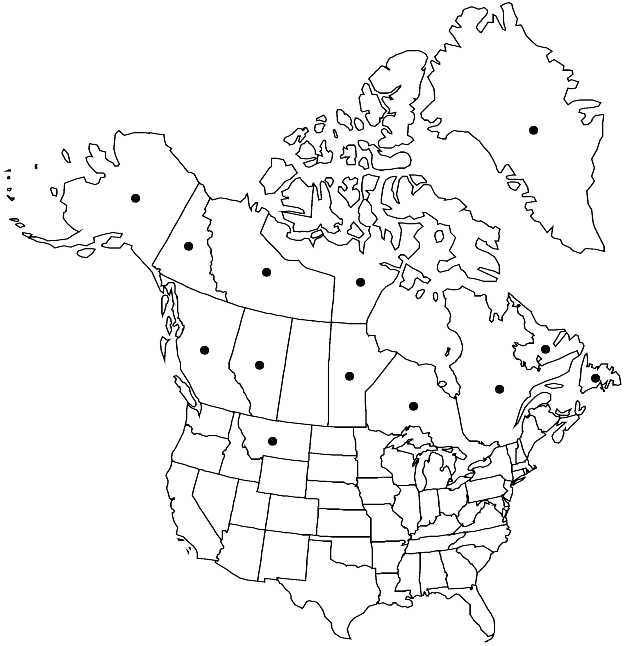Hypnum bambergeri
Syn. Musc. Eur., 698. 1860.
Plants large, reddish to yellowish-brown. Stems 2–8 (–10) cm, dark-brown to reddish-brown, ascending to creeping, usually little and irregularly branched, occasionally pinnate, branches 0.2–0.6 cm; hyalodermis absent, central strand weak; pseudoparaphyllia wide, foliose. Stem-leaves falcate to circinate-secund, oblong-ovate to oblong-lanceolate, narrowed to apex, 1.5–2 × 0.4–0.6 mm; base not decurrent, not auriculate; margins plane, sinuate to weakly serrate; acumen slender; costa single, or double and unequal, short to long; alar cells quadrate to short-rectangular, dark-brown, region well defined, weakly to markedly excavate, 3–7 cells high along margin, to 3–6 cells wide; basal laminal cells shorter than medial cells, yellow to orange, walls more strongly pitted; medial cells 30–60 × 4–6 µm, walls somewhat to markedly pitted. Sexual condition dioicous; inner perichaetial leaves ovate to oblong-lanceolate, margins laciniate at shoulders, entire at apex, acumen slender. Seta reddish, 1.3–2 cm. Capsule inclined to horizontal, yellowish, oblong-cylindric, 1.3–1.5 mm; annulus 3-seriate; operculum conic; endostome cilia 2 or 3.
Phenology: Capsules mature Jul–Aug.
Habitat: Seepage habitats, dry tundra, open conifer forests, mainly calcicolous
Elevation: low to high elevations (0-2500 m)
Distribution

Greenland, Alta., B.C., Man., Nfld. and Labr., N.W.T., Nunavut, Ont., Que., Yukon, Alaska, Mont., Europe, Asia
Discussion
Hypnum bambergeri is widely distributed in the Arctic and extends southward, especially in alpine sites. The plants are shiny; the leaf margins curve gradually to the insertion or form a weak auricle just beyond the alar cells. Sporophytes are infrequent. The laminal cells pitted throughout separate this species from all others in Hypnum. The usually calcareous terrestrial seepage habitat is also a useful trait.
Selected References
None.